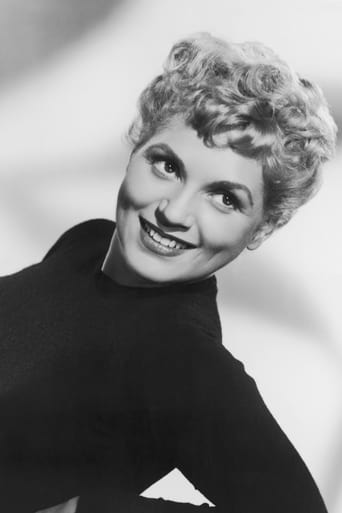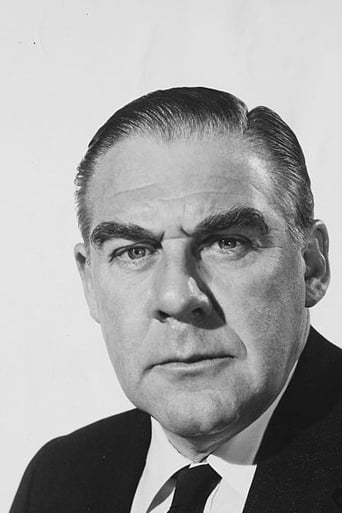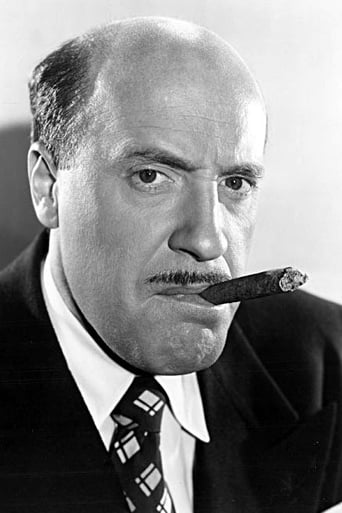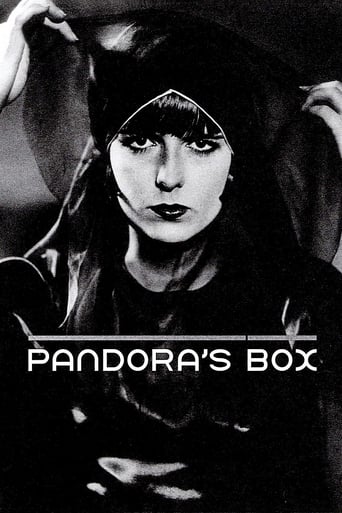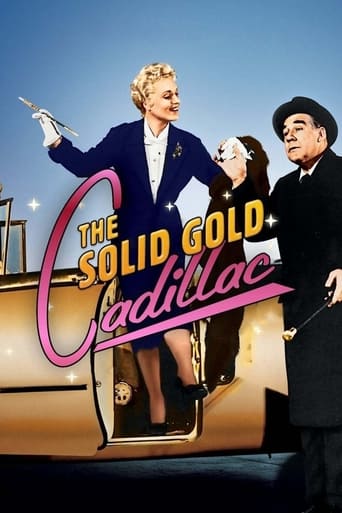
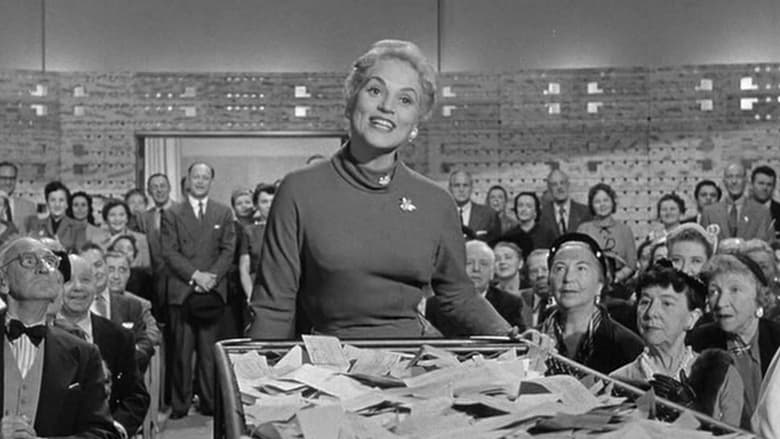
The Solid Gold Cadillac (1956)
Laura Partridge is a very enthusiastic small stockholder of 10 shares in International Projects, a large corporation based in New York. She attends her first stockholder meeting ready to question the board of directors from their salaries to their operations.
Watch Trailer
Cast
Similar titles
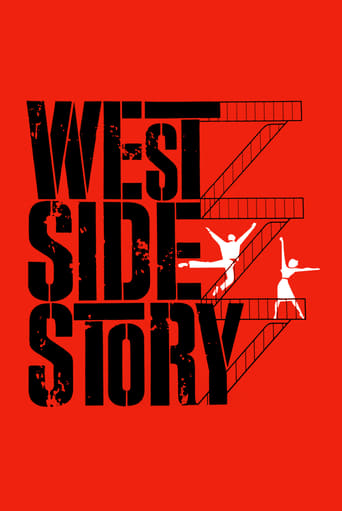
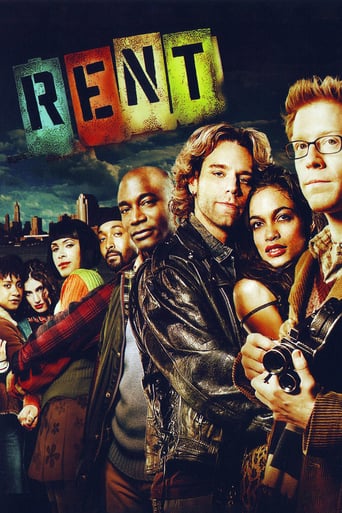
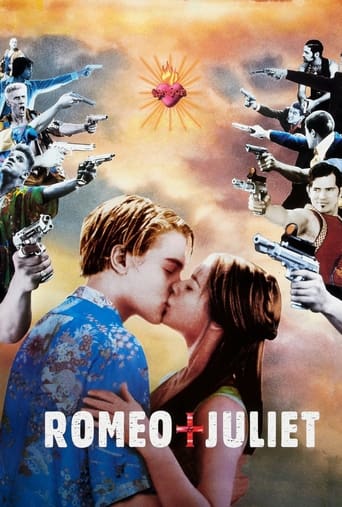
Reviews
Surprisingly incoherent and boring
Crappy film
This is a coming of age storyline that you've seen in one form or another for decades. It takes a truly unique voice to make yet another one worth watching.
True to its essence, the characters remain on the same line and manage to entertain the viewer, each highlighting their own distinctive qualities or touches.
Hollywood has had a long tradition of dumb blonde performers who could be counted on to produce more than their share of belly-laughs. None, however, was more expert at the trade than Judy Holiday whose untimely death robbed filmdom of one of its most accomplished comediennes. This movie, along with Born Yesterday, is among her very best, and should not be missed. Film fans may want to note that there's a direct line of descent from Holiday in this movie to Reese Witherspoon in the megahit Legally Blonde. Like Witherspoon's character in Blonde, everyone underestimates Holiday's Laura Partridge and with similarly devastating results. In both cases, it's that sweetly scatterbrained exterior that conceals a shrewd and determined inner woman, a combination which proves deadly for those who would happily exploit them. Here, it's the Board of a soulless corporation ( just then emerging from the 50's decade of growth) that falls into Holiday's trap with hilarious results. The Board itself is a stellar lineup of character actors: from the curmudgeonly Fred Clark, to the cultured John Williams, to the scheming Ray Collins, all familiar faces from the Late Late Show and pompously perfect targets for a womanly comeuppance. Holiday's pixilated exchanges with these smugly officious scofflaws are minor gems. Those interested in charting the rise of the women's movement might also note an important contrast between the two films. Holiday's character, for all her wiles and willpower, must eventually succumb in typical 50's fashion to her stronger male half as played by the always redoubtable Paul Douglas. On the other hand, Witherspoon's post-Gloria Steinam character discovers a hidden self-sufficiency that requires no Douglas counterpart, producing a typically 90's note of feminist triumph. But these are merely incidental reflections on an underrated movie that truly sparkles because of the comedic lustre of its star, the unforgettable Judy Holiday, in a role that suits her to the proverbial T.
This is a very cute and engaging film--buoyed by Judy Holliday's charming performance as a simple lady who wants answers! Judy is a very insignificant stockholder in a huge corporation. Like most corporations, the bulk of the stocks are controlled by thousands of tiny investors while a few larger investors are in charge of running the day to day operations. While the officers of the corporation own much less than 50% of the stock, the rest of the investors are not united. Judy sees that is a problem when she shows up at an open meeting for stockholders and finds that the board is completely unresponsive to her. She rightly reasons that as a stockholder, she has a right to be heard, but the officers treat her as a nuisance and ignore her. So, instead of just walking away and forgetting it, Judy decides to fight back by organizing the members and getting enough proxy votes to force change. At first, they laugh at the notion, but by the end of the film, it's Judy who has the last laugh! This film is very well-made and great fun to watch--with a lovely comedic tone. Too bad that Ms. Holliday died so young, as she had quite a hand for this style of film.
Judy Holliday is one of the lost generation of 1950s stars. She is in that group with Marilyn Monroe, James Dean, Grace Kelly, and Shirley Booth who gained stardom in motion pictures, but either died prematurely (Dean, Monroe, Holliday), or made few movies (Dean, Booth, Kelly, and Holliday), or left the motion pictures for other areas of public attention (Booth with her stage and television work, Kelly as Princess of Monaco). Holliday, Booth, and Kelly won the Oscar for best actress (Monroe never did - Dean was nominated but never won). But she is probably the least remembered, although she made as many films as Kelly, and more than either Booth or Dean. Moreover, the elderly Booth never really had a film following (unlike her stage following), and Dean was representative of a new type of film hero like Monty Clift and Marlon Brando. Holliday was more accessible, as a representative of urban, mid-century America.What was her best film? BORN YESTERDAY (her Oscar performance) is usually the one mentioned, or IT COULD HAPPEN TO YOU (as Gladys Glover, the woman who creates her own publicity and fame), or THE MARRYING KIND? To me though, her best performance is THE SOLID GOLD CADILLAC. It takes off from where BORN YESTERDAY left. That film dealt with corporate corruption of politics (Billy Dawn's boyfriend Harry buying an influential Congressman). The corruption there is the creation of of a cartel controlling (through garbage dumps) scrap metal sales. In SOLID GOLD CADILLAC, Harry's junk empire is replaced by a major Wall Street corporation created by Paul Douglas. Douglas' McKeever had a strong hand controlling his fellow directors, but he's taken a "dollar-a-year" job in Washington (his fellow directors hope he'll send the corporation valuable government contracts - he doesn't). Once he leaves, the others (John Williams, Fred Clark, Ralph Dumke, and Ray Collins) take over, and as the narrator (George Burns) says - "Did I tell you they were crooks?...Boy were they crooks!"It would have been smooth sailing but for two problems. Before he left, McKeever attended a final stockholders meeting. One shareholder (who owns only a couple of shares) is Laura Partridge (Holliday). She happens to demand explanations for various of the actions of the firm in the last year. To silence her they make her a secretary - quasi officer. She is used to keep in touch with the shareholders as a public relations figure. The other problem is due to Harry Harkness (Hiram Sherman) the brother-in-law of the firm's President Jack Blessington (John Williams). Harkness has to be given a job at the demand of Blessington's wife (Harkness' sister). He is a total idiot, best used to playing polo. His "abilities" send the firm reeling, and with the antics of Ms Partridge raises the blood pressure of the firm's bosses, particularly the firm's comptroller Clifford Snell (Fred Clark - possibly his best comic performance).The forces of greed (the corporate officers) and the forces of good (Douglas and Holliday when they join forces) confront each other in the last half hour of the film: who will run the great company. All I will say is that it comes down to who owns more of the company. As a look at the financial culture of the Eisenhower years (and even now, in the wake of Enron and other scandals) THE SOLID GOLD CADILLAC can't be beaten. As a showcase of Judy Holliday's friendly, common sensible urbanite taking on the corrupt it is wonderful. Witness her momentarily getting the upper hand over the villains when she uncovers an particularly stupid action by Sherman regarding a company subsidiary. The four directors silently listen to her lecture and agree to her demands, and at the end are glaring at the embarrassed Sherman. If you want to see Holliday at her best comic performance (my opinion), I recommend this film for that purpose.
This is one of the last Capra-esque, indeed Kaufman-esque, well-made movies, even though it's release was well into the fifties. The socio and geo-political ramifications perhaps resonate even more so in our post-Enron and present Halliburton era. Aside from being hilarious and utterly entertaining ( I imagine even more so on the live stage with a raucus audience), the story poses the eternal question of personal integrity, simple honesty, and common decency; and that multinational corporations and super-power governments should be less occupied with "getting away with it" or "not getting caught"; rather more so with "doing the right thing" and producing the best for everyone. This film should be taught. Instead, it's slowly disappearing from the geopolitical landscape; i.e., it's becoming harder to find in video stores.
